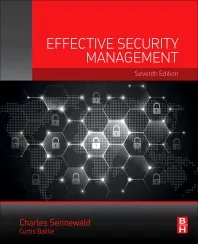At ASIS: CRISP Report on Workplace Dishonesty Released
Estimates reveal that between 40 to 50 percent of all business losses can be attributed to employee theft. Employers cannot afford to ignore this large-scale problem and should do everything in their power to create a workplace atmosphere that promotes honesty and encourages and rewards good behavior. This is the conclusion of a new Connecting Research in Security to Practice (CRISP) Report commissioned by the ASIS Foundation.
The report, “Strategies to Detect and Prevent Workplace Dishonesty” by Read Hayes PhD, provides research-informed, practical strategies to reduce counterproductive workplace behaviors, including thefts and frauds of all types. It describes factors that can lead to these behaviors, describes common employee theft and fraud methods, and analyzes selected prevention techniques, policies and technologies.
“Regardless of their motivation, many employees are more likely to stray from acceptable behavior when the opportunity presents itself,” Read writes. “If an employee perceives little chance of being caught, he or she may be more inclined to steal.”
The report provides employers in all types of businesses with ways to discover counterproductive and criminal employee behaviors and to prevent employees from even thinking of swaying from acceptable workplace norms. When implemented, the numerous strategies documented through research can prevent problems from occurring—and reoccurring.
To download the CRISP Report “Strategies to Detect and Prevent Workplace Dishonesty,” go to http://www.asisonline.org/foundation/dishonesty.pdf.
About the Author Read Hayes PhD is director of the Loss Prevention Research Council and co-director of the Loss Prevention Research Team at the
About the CRISP Reports The CRISP—Connecting Research in Security to Practice—Reports are a series of white papers on subjects that impact the security industry. Each of the white papers explores issues of topical and practical concerns to security professionals. Additional CRISP Reports released in 2008 include “Preventing Gun Violence in the Workplace” and “Lost Laptops = Lost Data: Measuring Costs, Managing Threats.”
Looking for a reprint of this article?
From high-res PDFs to custom plaques, order your copy today!




